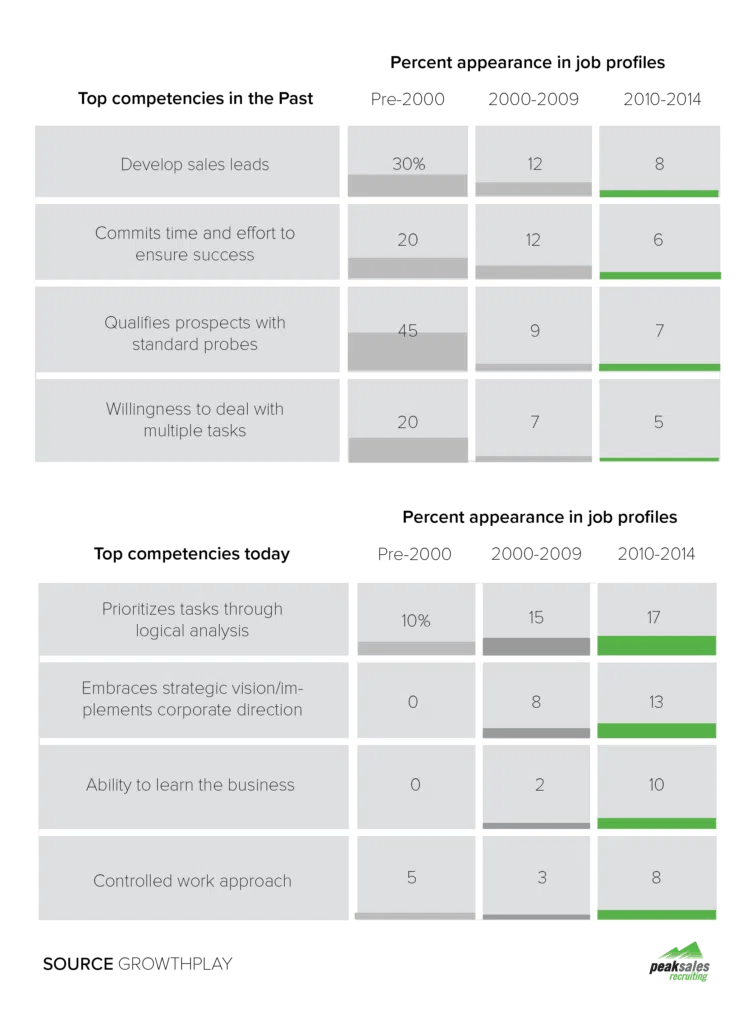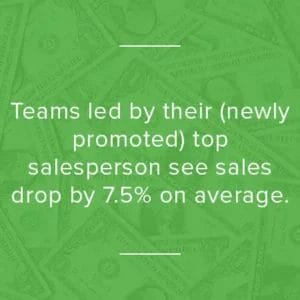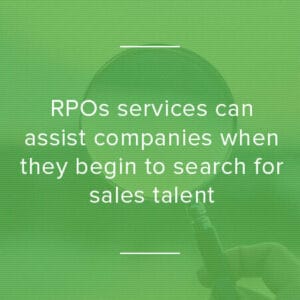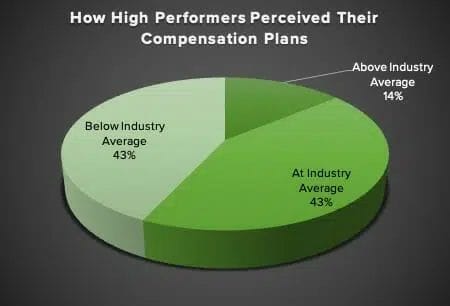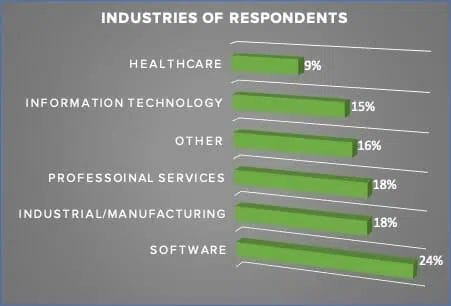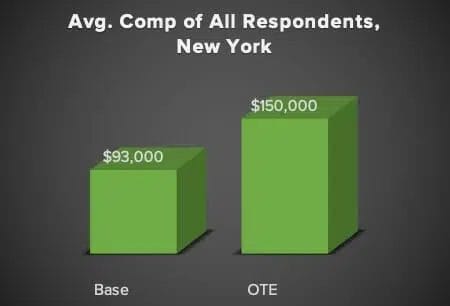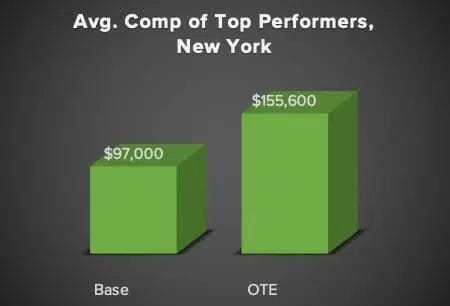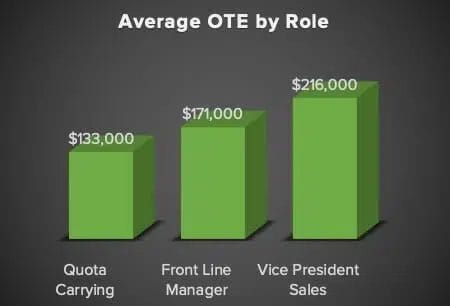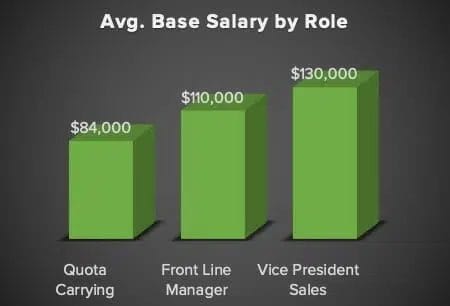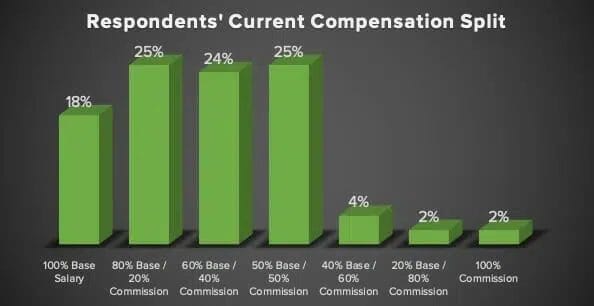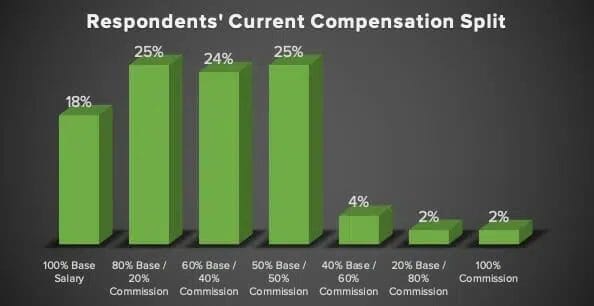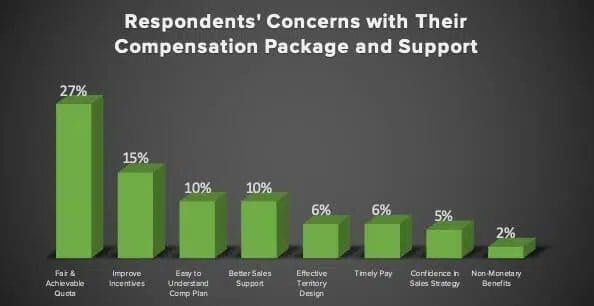Global issues such as COVID-19 have accelerated the adoption of remote sales teams in companies across the world. Giants such as Google, Microsoft, and Amazon have all encouraged teams to work from home and as cities and states across North America shut down, many other companies are rapidly moving 100% of their collaboration and operations online.
Now may be the time for sales, human resource, and operational leaders who have been considering the addition of remote salespeople to make the leap—after all, companies that still require all sales reps to work in an office are compromising their ability to scale.
Many organizations are ahead of the curve when it comes to implementing successful remote work policies; tech companies like Zapier, Mozilla, Buffer, and Basecamp have been demonstrating them for a long time. And PwC has an “everyday flexibility” policy of letting teammates work where they choose, and have been listed on Fortune’s 100 Best Companies to Work For list for 15 years in a row.
We have compiled some resources to guide your company’s transition to remote work, with particular focus on your sales team. We will share guidance from those who have already figured it out, as well as a list of tech tools to adopt. Ultimately, sales teams that work remotely are sales teams that can grow and perform better in today’s new climate.
Want to not just mitigate risk, but scale? Embrace remote work.
At Peak Sales Recruiting, we believe that requiring all reps to come into a physical office every day hurts the team’s—and company’s—ability to scale. Why?
-
- It makes it difficult to hire top talent. Today, reps expect the flexibility of working remotely and consider it an asset when choosing an employer. In addition, hiring only in one’s physical town restricts the talent pool significantly.
- It increases risk and lowers resilience in the face of disasters, such as COVID-19. Teams that are well-practiced at remote collaboration can more easily adapt to remote-mandated working conditions.
- It is less cost-efficient. The need to pay for office space in expensive metropolitan areas is significant.
- It is not in line with today’s global political climate. Increasing immigration restrictions are making it difficult to hire foreign talent and relocate them to a physical headquarters.
There is already a talent shortage and the refusal to adopt remote working simply makes it worse. Hiring remote-working sales talent in other locations can add extremely high-quality to a team’s ranks. Companies can tap into a new pool of top salespeople, sometimes for more affordable compensation, and it is actually a value-add for A-players, making them more likely to choose your company over others.
It is such a value-add that in a 2017 Stanford study, the average worker was willing to accept 8% less pay just for the option to work from home. Flexible remote work is not just a cherry-on-top; people give it a monetary value.
And employers are using it as a way to attract talent. LinkedIn’s Global Talent Trends 2019 report shows that since 2016, there has been a 78% increase in job posts on LinkedIn mentioning work flexibility. This is a valuable offering for many types of employees and, for millennials in particular, flexibility in work correlates to loyalty to their employer, according to The Deloitte Global Millennial Survey 2019.
Virtual teams are more productive
Managers are often concerned that remote working will bring about a decrease in communication, or a degradation of culture and organic, informal connection. And, of course, they worry about a decrease in individual productivity due to multitasking, or the blurring of lines between personal and work time.
But remote workers are just as, if not more, productive than in-office teams:
- A report by Aon Consulting showed that some organizations have seen productivity gains of up to 43% after adopting virtual teams.
- A study of 80 global software teams indicated that remote teams can outperform those that share an office (if well-managed).
- A study of remote patent examiners at the U.S. Patent & Trade office showed a 4.4% productivity increase, representing up to $1.3 billion of annual value added to the US economy, based on the average economic activity generated per additional patent.
Of course, a team needs the right leadership, software tools, and protocol to enjoy remote-work success. There are plenty of challenges—the FYI’s The Remote Work Report lists the top three as communication, social opportunities, and loneliness/isolation. These are followed by setting boundaries, visibility in the organization, time zones, team culture, and more.
Luckily, sales teams have access to a slew of tools built just for supporting remote and hybrid-remote teams. And there is plenty of guidance from those who have already paved the way.
Guides and resources for remote sales teams
| GitLab’s Remote-Work Resources
GitLab is the world’s largest all-remote company, with team members located in more than 65 countries around the world. They have published an end-to-end toolkit for going remote. Zapier’s Guide to Working Remotely Zapier is a B2B SaaS company that has been 100% remote since its founding. They published a handbook that shares everything they’ve learned about running a remote team. FYI’s The Remote Work Report An in-depth survey of 486 people about remote working. It provides insights into the daily experiences of people currently working remotely and what they need to thrive. Five things I learned building a remote sales team In this article, WeTravel’s Zaky Prabowo collects his advice for hiring and running a remote sales team, including: invest in a strong CRM, hire very organized salespeople; do a daily team call for 15 minutes; use remote work as a value proposition for hiring; and use alternative, niche hiring channels to find salespeople. 5 Powerful Strategies for Managing a Remote Sales Team Peter Banerjea highlights smaller, creative tools for collaborating as a remote team and staying accountable, building trust, and executing sales processes just as accurately as if the team were all in one building. |
Virtual work software
There is a rapidly growing, ever-shifting cloud of tools that serve remote teams. This is by no means a comprehensive list, but it is a good starting point for leaders looking to support remote employees—or taking the leap to 100% remote.
Project Management
- Asana – Easily organize and plan projects, workflows, and more
- Basecamp – The calm and organized way to manage projects and people
- Trello – Trello is a visual Kanban board tool for organizing work
- 10000ft – High-level project and resource management software
- Teamwork – A work and project management tool that helps teams
improve collaboration, visibility, and accountability
Videoconferencing and telework communication
- Slack – Slack brings team communication and collaboration into one place
- Zoom – An easy, reliable cloud platform for video and audio conferencing, chat, and webinars
- Google Hangouts Meet – Video meetings for your business
- World Time Buddy – A convenient world clock, a time zone converter, and an online meeting scheduler
- Twist – A distraction-free teamwork app
Documents and cloud storage
- Google G Suite – An integrated suite of secure productivity apps including Docs, Drive, Calendar, Meet, and Gmail
- Office 365 – Collaborate for free with online versions of Microsoft Word, PowerPoint, Excel, and OneNote.
- Dropbox – Store and access team files on any computer or mobile device
- Box – Cloud content management and file sharing service for businesses
- Notion – A new editor that blends notes, tasks, and wikis into one app
CRM & sales tools
- Salesforce – Unify marketing, sales, service, commerce, and IT teams
- HubSpot – A full platform of marketing, sales, customer service, and CRM software
- Marketo – Marketo’s powerful marketing automation software helps marketers master the art and science of digital marketing
- Chorus.ai – The leading conversation intelligence platform for sales teams
Productivity and time management
- Todoist – 20 million people and teams use Todoist to organize, plan, and collaborate on tasks and projects
- Time Doctor – employee time tracking software that helps you and your team get a lot more done each day
- iDoneThis – I Done This helps track your own progress, understand what your team is working on and stay in sync
Team morale and happiness surveys
(Measuring sales team morale and gathering feedback in a structured way is important for remote teams, where this happens less organically.)
- Chimp or champ – A weekly anonymous employee happiness meter for you to check your team’s pulse
- TINYpulse – The world’s leading employee engagement platform
Companies who refuse to take a remote or remote-hybrid approach to their sales teams are hurting their ability to scale. A distributed workforce allows employers to hire more and better talent, save costs, and respond to global unrest and pandemics.
Luckily, this is the perfect time to make a transition to more flexible work policies. An entire industry of software tools and thought leaders are here to help you join the ranks of those who are already benefiting from having “remote control.”

Related posts
Eliot Burdett
He co-authored Sales Recruiting 2.0, How to Find Top Performing Sales People, Fast and provides regular insights on sales team management and hiring on the Peak Sales Recruiting Blog.
Latest posts by Eliot Burdett (see all)
- 20 Of Our Favorite Books About Sales Management and Sales Leadership – October 20, 2023
- How To Make Progress On Your Sales Goal Without A Sales Leader – September 15, 2021
- Augment Your Recruiting Strategy During “The Great Resignation” – July 26, 2021


